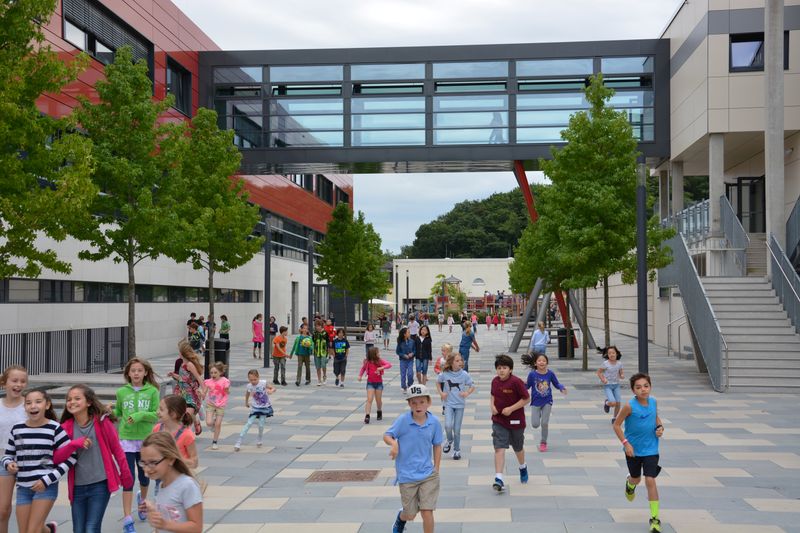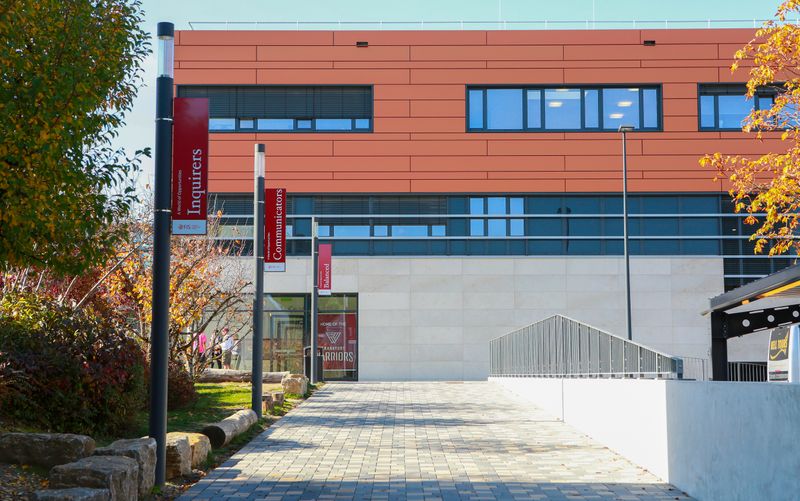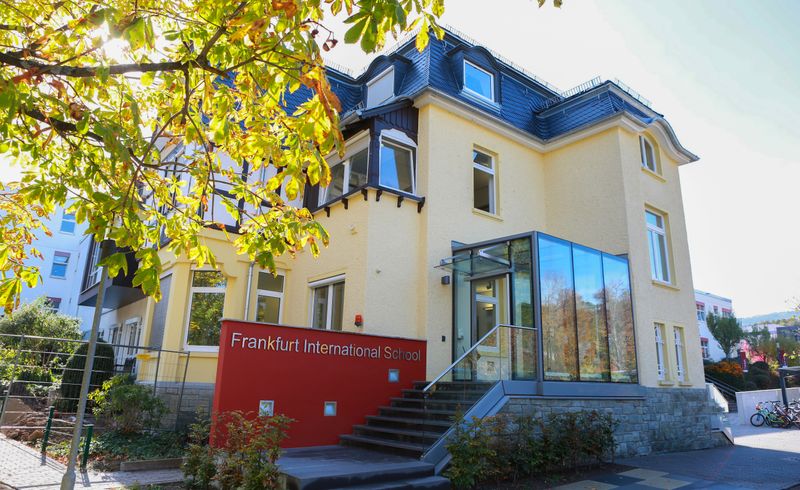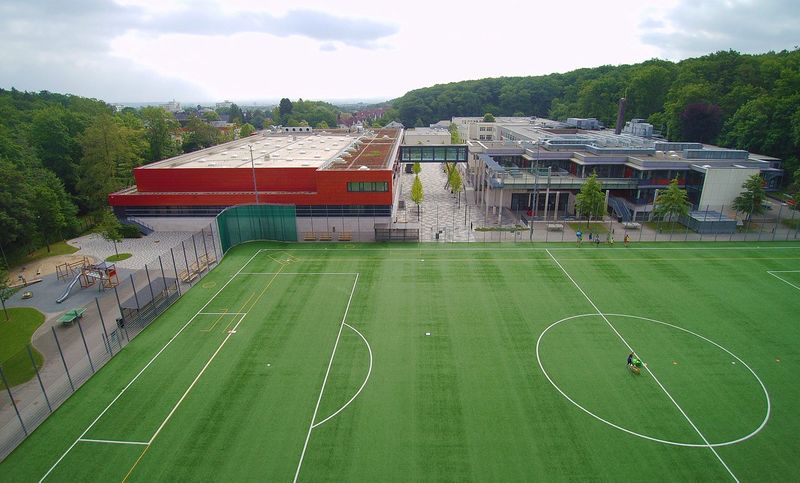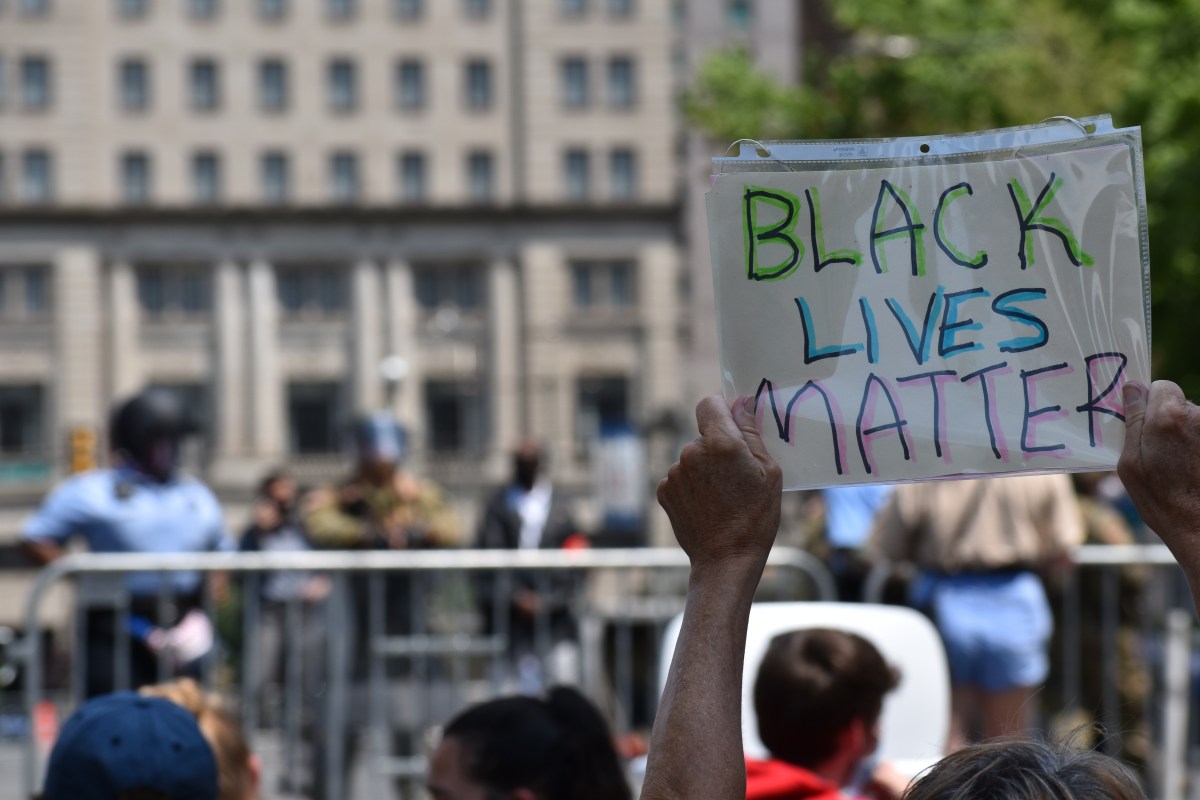LONDON (Reuters) – The coronavirus pandemic has forced some British-based families to put Brexit-related plans to move to the European Union on hold, leaving some top international schools wondering when a predicted surge in new applications will materialize.
Thousands of staff – and their school-age children – could relocate from London as financial firms reorganize to maintain a presence in the European single market, and this had been expected to benefit schools in the region.
But as the new academic year begins, three of the most prestigious institutions in the EU said they had yet to see a landslide in enrolment requests from UK-based families before Britain finally cuts ties with the bloc on Dec. 31.
“The double impact of COVID-19 and Brexit is impacting the way globally mobile families approach relocation,” Caroline MacDonald, Director of Advancement at the American School of Paris (ASP), told Reuters.
“While some of our families arrived in France soon after Brexit was announced, there’s not been a marked increase in families rushing to move before the end of the transition period,” she said.
The American School of Paris, which teaches an American curriculum to students aged 3-18, and where fees range from 19,000 to 35,150 euros per year, welcomed just eight new students from Britain when its campus reopened on Aug. 26.
This reflected a dip in applications from families linked to embassies, institutions such as the European Banking Authority, and private firms in France.
The slower-than-expected pace of enrolment has also been seen in Frankfurt and Amsterdam, where several global financial firms and EU institutions such as the European Medicines Agency have moved from Britain.
Some employers may also be reluctant to support pricey fees.
“We’ve found a lot of children of families educated in the UK and then relocated to Amsterdam have been subject to financial restrictions on school options they could go for,” said Paul Morgan, head of the British School of Amsterdam.
The British School of Amsterdam – where annual fees range from 15,840 to 16,980 euros – still has vacancies in its infant school, according to its website as at Sept. 1.
NO HURRY TO MOVE
One source at a major international bank said it was giving staff “as long as possible” to relocate to avoid unnecessary disruption.
But global banks in Britain are under pressure from European regulators to move key staff to their new EU hubs without delay, despite COVID-19.
Paul Fochtman, Head of the Frankfurt International School (FIS), said his institution, whose staff and students represent more than 50 nationalities and where annual fees range between 20,730 and 25,700 euros, is still waiting for a Brexit applications boom.
He said some Brexit-related relocations due to happen in the 2019/2020 academic year were put on hold due to COVID, and the rate of Brexit-linked applications to the school for the 2020/2021 year also declined compared to pre-COVID levels.
Around 10 students planning to join the FIS from Britain in August had deferred their arrival until January, with a few of those potentially deferring again until August 2021.
Fochtman said demand for places from families of other nationalities moving to Germany instead of Britain was on the rise, offsetting the smaller numbers of UK-to-EU applications also seen in Paris and Amsterdam.
Some 40% of the new enrolment at the ASP this year was from families moving to France from around Europe, MacDonald said.
“We haven’t seen that huge surge that you might have imagined after Brexit, when we were all thinking about what might happen. I can’t tell you that we have seen any bigger demand than in previous years,” Morgan said.
(Reporting by Sinead Cruise; Editing by Giles Elgood)

